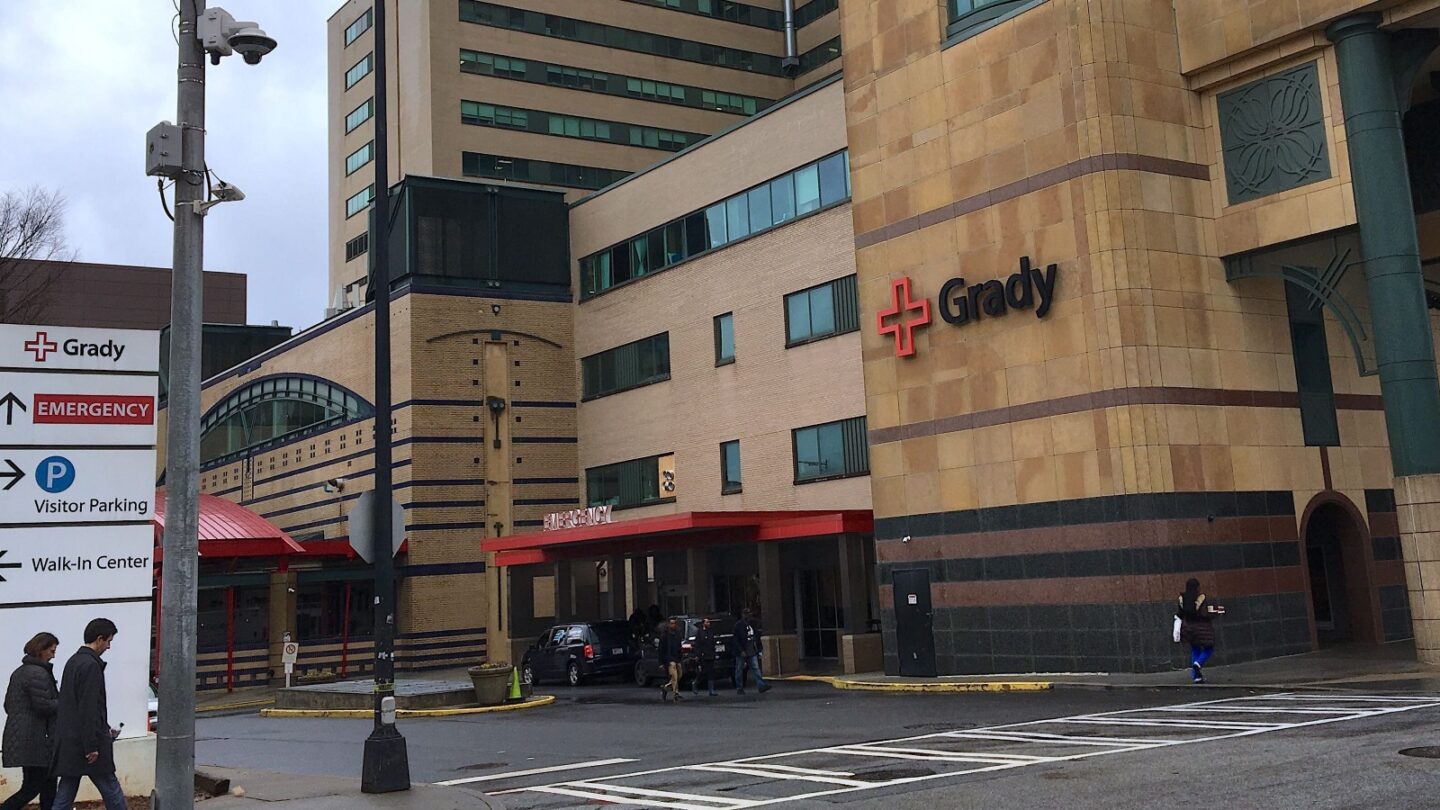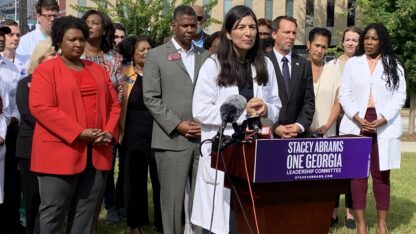More aid may be headed to Grady Hospital ahead of Atlanta Medical Center closure

Grady is Atlanta’s only other Level I trauma center besides Atlanta Medical Center, which is slated to shut down in November.
Lisa Hagen / WABE
Another big round of financial aid may be coming to Grady Health System, the city’s only other Level I trauma center beyond Atlanta Medical Center. But with AMC closing in less than two months, health advocates say they want more than just a quick financial fix for Grady.
In November, when Atlanta Medical Center shuts down, Grady Health System President and CEO John Haupert anticipates Grady will see a lot more patients.
That’s what happened after Wellstar Health System closed its East Point emergency department in April.
“You know, we’re just a few miles apart,” he said. “When the South AMC Medical Center closed, we saw overnight a 50-visit increase in our emergency department. Five zero.”
Most of these patients, he said, didn’t actually need emergency care.
“It could be, ‘I think I have an earache,’ [or] ‘My sinuses are congested.’ It may be a medication refill. And so it is the types of things that are not urgent or emergent, [conditions] that really are best treated with a primary care physician.”
Grady is prepared to see more of these patients once Atlanta Medical Center shuts down.
Even before the AMC closure announcement, Grady had expansion plans underway to add 180 new beds by the end of next year, open a new nearby outpatient and specialty clinic building and reconfigure its existing main hospital space.
But Haupert said until that expansion is complete, Grady will need more short-term space.
“One thing that we’re going to have to do [in the interim] is place what is called a ‘temporary medical unit,’ which is a mobile hospital, down on the corner of Coca-Cola and Pratt Streets,” Haupert said.
It’s a good solution, Haupert said — for now. He said a better solution would be expanding Medicaid so patients could regularly see a primary care doctor instead of ending up — often sicker — in the ER.
“It really is the best thing we could do in Georgia for the 600,000 people that still remain uninsured,” Haupert said. “People who have been unable to get the health care they need to reach their potential for health would then have a huge step up on being able to do that. And second, having financial dollars that help cover the cost of that care.”
Reimbursements for that medical care for patients who can’t afford to pay would go up significantly if the state fully expands Medicaid, said Laura Colbert, who heads the policy group Georgians for a Healthy Future.
“Many more of their patients would be insured and therefore that would reduce the losses that they see at the hospitals,” she said.
Wellstar officials say expanding Medicaid would have helped AMC’s financial sustainability but that Medicaid expansion alone would not have kept it open, citing millions of dollars in operating losses.
Last week at a campaign event in Atlanta, Governor Brian Kemp reiterated his opposition to expanding Medicaid.
Instead he’s been working directly with hospitals and elected officials on ways to mitigate the impacts of Atlanta losing the nearly 500-bed AMC.
“We’re hard at work, my team is as well,” Kemp said, “and we are going to figure this out.”
More details about the state’s plans are expected this week.








